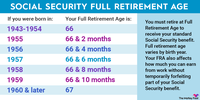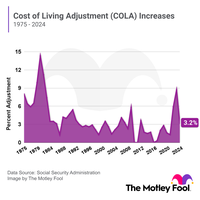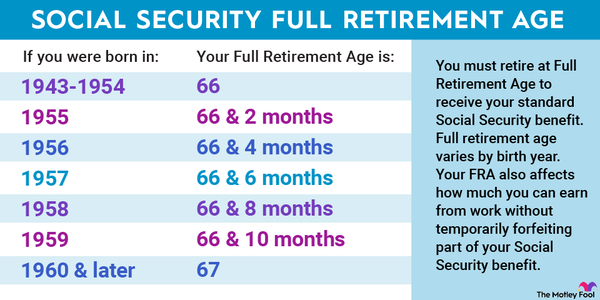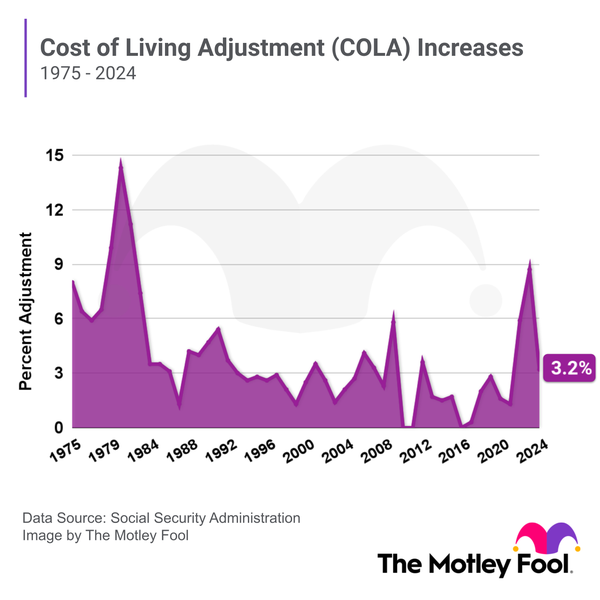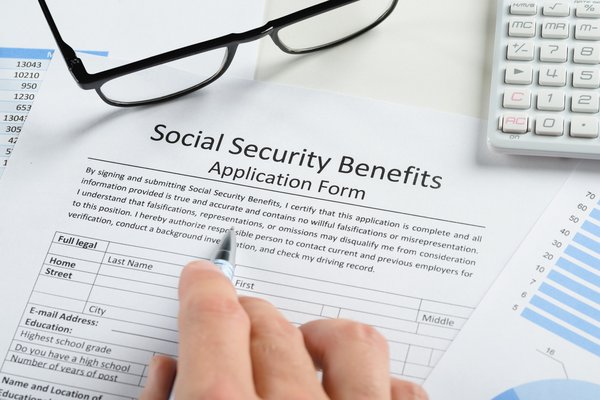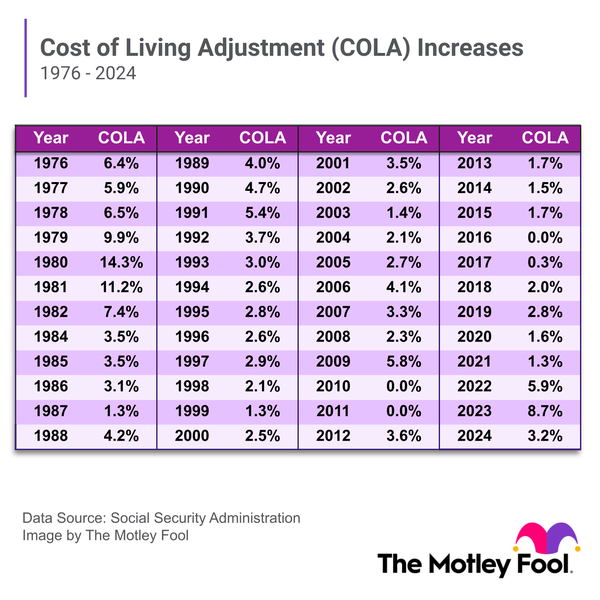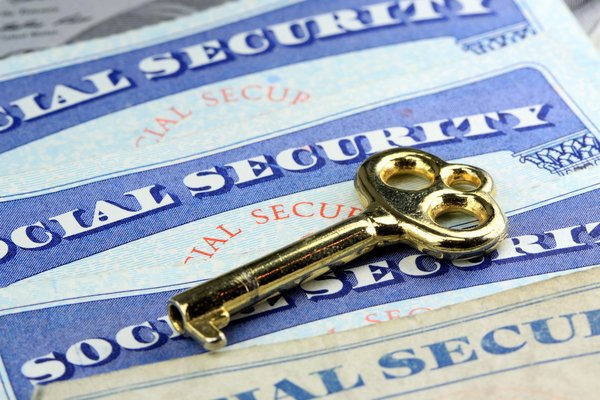Social Security is commonly seen as a source of retirement income. But you're allowed to work and take Social Security retirement benefits or survivor benefits at the same time. If you do so before you reach full retirement age, though, Social Security may withhold part of your benefits.
Below we'll cover how you can get Social Security benefits even while you're still working. Learn how you can keep as much of that money as possible.
How much can you earn and still receive Social Security?
How much can you earn and still receive Social Security?
When you take benefits while you're still working, Social Security may withhold part of your benefit depending on your income if you haven't reached full retirement age. Your full retirement age is between 66 and 67 if you were born from 1943 to 1959; it's 67 if you were born in 1960 or later.
Social Security will withhold benefits at the following rates in 2024:
- $1 for every $2 of earned income above $22,320 until the year you reach full retirement age. Let's say you're 64 and earn $25,000 from working, and you're already getting benefits. You've earned $2,680 above the earnings limit, so Social Security would withhold $1,340 from your benefit.
- $1 for every $3 of earned income above $56,520 the year you reach full retirement age until the month before you're eligible for your full benefit. Suppose you reach full retirement age in October. Social Security would only reduce your benefits if you earned more than $56,520 between January and September.
The 2023 Social Security withholding thresholds are as follows:
- $1 for every $2 of earned income above $21,240.
- $1 for every $3 of earned income above $56,520.
These rules apply whether you're an older worker taking benefits based on your own work record or you're getting a spousal benefit or a survivor benefit.
The key to understanding Social Security's rules about working and benefits is that everything changes when you reach the date when you can fully retire. After that point, you can earn as much as you want and still keep all your benefits. Earlier, though, you can give up some of your benefits.
Can you get your full benefit if you're still working?
Can you get your full benefit if you're still working?
If you've reached full retirement age and you're still working, you don't need to worry about any earnings limits. Social Security will not withhold money from your monthly benefit. Social Security also won't take money out of your checks if you claim early but your income is below the thresholds listed above.
What happens to the money Social Security withholds?
What happens to the money Social Security withholds?
The Social Security Administration calculates the appropriate amount that you'll forfeit and then takes it out of your monthly benefits. You'll see entire monthly checks held back by the government to cover the withholding. For example, if you normally get Social Security of $1,000 per month but you have to forfeit $4,000, then Social Security will hold back four months' worth of checks.
As painful as it is to lose your benefits, there is some payback. If you lose a month's worth of benefits, then Social Security treats you as if you retired a month later than you did. Once you hit full retirement age, you'll start getting larger monthly checks based on that later retirement date. You might not get all your lost money back, but the bigger checks will gradually send some of it your way.
Are your Social Security benefits taxed if you're still working?
Are your Social Security benefits taxed if you're still working?
If you have earnings from working or you have other taxable income, such as distributions from a retirement plan, part of your Social Security may be taxed.
Whether you're still employed or you're a retiree, you'll pay taxes on up to 85% of your Social Security benefit if:
- You're single with a taxable income of $34,000 or higher.
- You're married filing jointly with a combined taxable income of $44,000 or higher.
You'll pay taxes on up to 50% of your Social Security benefit if:
- You're single with a taxable income between $25,000 and $34,000.
- You're married filing jointly with a combined income between $32,000 and $44,000.
If your income is below these limits, you won't owe taxes on your Social Security.
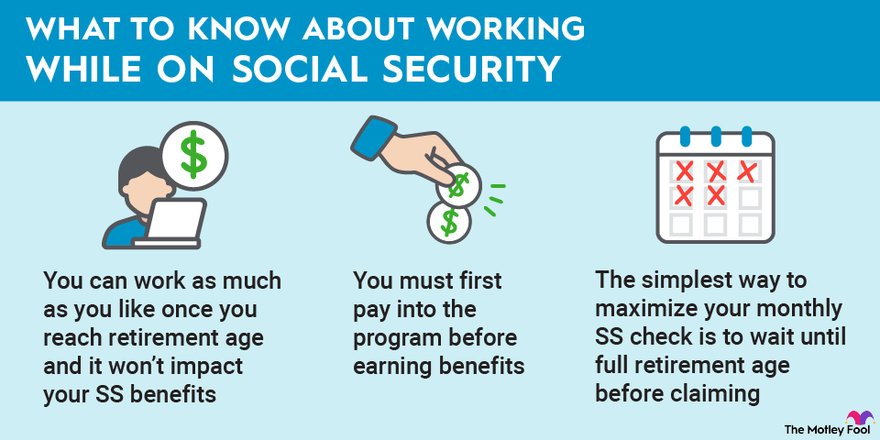
What if I stop working in the middle of the year?
What if I stop working in the middle of the year?
There's a special rule for when you work part of the year but then retire. Regardless of your total earnings, you're still entitled to get Social Security checks for any month in which you've officially retired.
As an example, say you retire early at 63 and decide that you're going to quit your $200,000-per-year job at the end of June. You'd forfeit all of your benefits for the first six months of the year because of your high earnings, but, starting in July, you could still get checks for the remaining six months even though your total annual earnings were well above the annual limit.
Will I lose my Social Security Disability or SSI benefits if I work?
Will I lose my Social Security Disability or SSI benefits if I work?
Rules for disability benefits are completely different from retirement benefits. In order to collect disability, the Social Security Administration requires that you no longer be able to engage in what's known as substantial gainful activity. That means earning no more $1,470 per month in 2023 or $1,550 in 2024 unless you're blind. In that case, a monthly limit of $2,460 in 2023 and $2,590 in 2024 applies.
Unlike the retirement benefit rules, there's no phaseout for losing disability benefits. Earn a single $1 above the limit, though, and you lose every penny of what you get from Social Security Disability. If you make less than the amounts above, then you keep full benefits, but, if you make more, then you lose all of your disability benefits.
However, Social Security allows disabled workers a nine-month trial period to test their ability to work. During this period, you're allowed to collect your full benefit no matter how much you earn, as long as you report the income and still have a disability.
If you receive Supplemental Security Income (SSI), your benefits are reduced by $0.50 for every dollar you earn above $85.
Related retirement topics
Should I work and take Social Security?
Should I work and take Social Security?
If you want to maximize your monthly Social Security checks, the simplest retirement strategy is to wait until full retirement age before claiming your benefits. That way, you'll be able to earn an unlimited amount without losing a penny of your Social Security.
If waiting that long isn't an option, there are still some things you can do. For many, claiming at the beginning of the year in which you'll reach full retirement age works out fine because the higher earnings limits make it less likely that you'll give up your Social Security.
Finally, if you're expecting to work on a part-time basis, it's smart to look at the earnings limits and how they compare with your pay. If it looks like you might trigger the provisions, then you might decide to work a little less to keep all your benefits.


